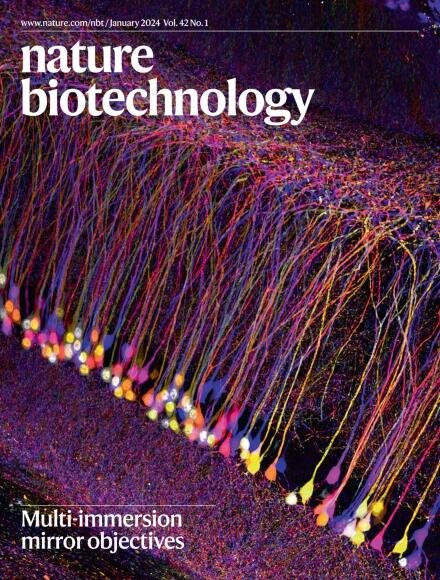Response to ‘Why Japan lacks a vibrant biotech industry’
IF 33.1
1区 生物学
Q1 BIOTECHNOLOGY & APPLIED MICROBIOLOGY
引用次数: 0
对“为什么日本缺乏充满活力的生物技术产业”的回应
在他们4月份的文章中,Mark Kessel和Chris Vickrey提出了一些关于日本生命科学产业的合理担忧,以及为什么它没有充分发挥其潜力。他们承认,创新药物的负面定价环境是问题的一部分,政府投资不足的历史也是问题的一部分。然而,他们的论点中没有提到日本机构最近提出的一些旨在解决这些问题的举措。作者断言,“日本根本没能建立起一个创业生态系统,尤其是在生物技术领域。”然而,我们认为这个国家的创业生态系统正在成长。在所有行业中,对日本初创企业的风险资本投资在过去十年中都有所增加,从2012年的5亿美元增加到2023年的97亿美元。特别是在生物技术领域,2023年日本的风险投资总额为9.13亿美元。
本文章由计算机程序翻译,如有差异,请以英文原文为准。
求助全文
约1分钟内获得全文
求助全文
来源期刊

Nature biotechnology
工程技术-生物工程与应用微生物
CiteScore
63.00
自引率
1.70%
发文量
382
审稿时长
3 months
期刊介绍:
Nature Biotechnology is a monthly journal that focuses on the science and business of biotechnology. It covers a wide range of topics including technology/methodology advancements in the biological, biomedical, agricultural, and environmental sciences. The journal also explores the commercial, political, ethical, legal, and societal aspects of this research.
The journal serves researchers by providing peer-reviewed research papers in the field of biotechnology. It also serves the business community by delivering news about research developments. This approach ensures that both the scientific and business communities are well-informed and able to stay up-to-date on the latest advancements and opportunities in the field.
Some key areas of interest in which the journal actively seeks research papers include molecular engineering of nucleic acids and proteins, molecular therapy, large-scale biology, computational biology, regenerative medicine, imaging technology, analytical biotechnology, applied immunology, food and agricultural biotechnology, and environmental biotechnology.
In summary, Nature Biotechnology is a comprehensive journal that covers both the scientific and business aspects of biotechnology. It strives to provide researchers with valuable research papers and news while also delivering important scientific advancements to the business community.
 求助内容:
求助内容: 应助结果提醒方式:
应助结果提醒方式:


